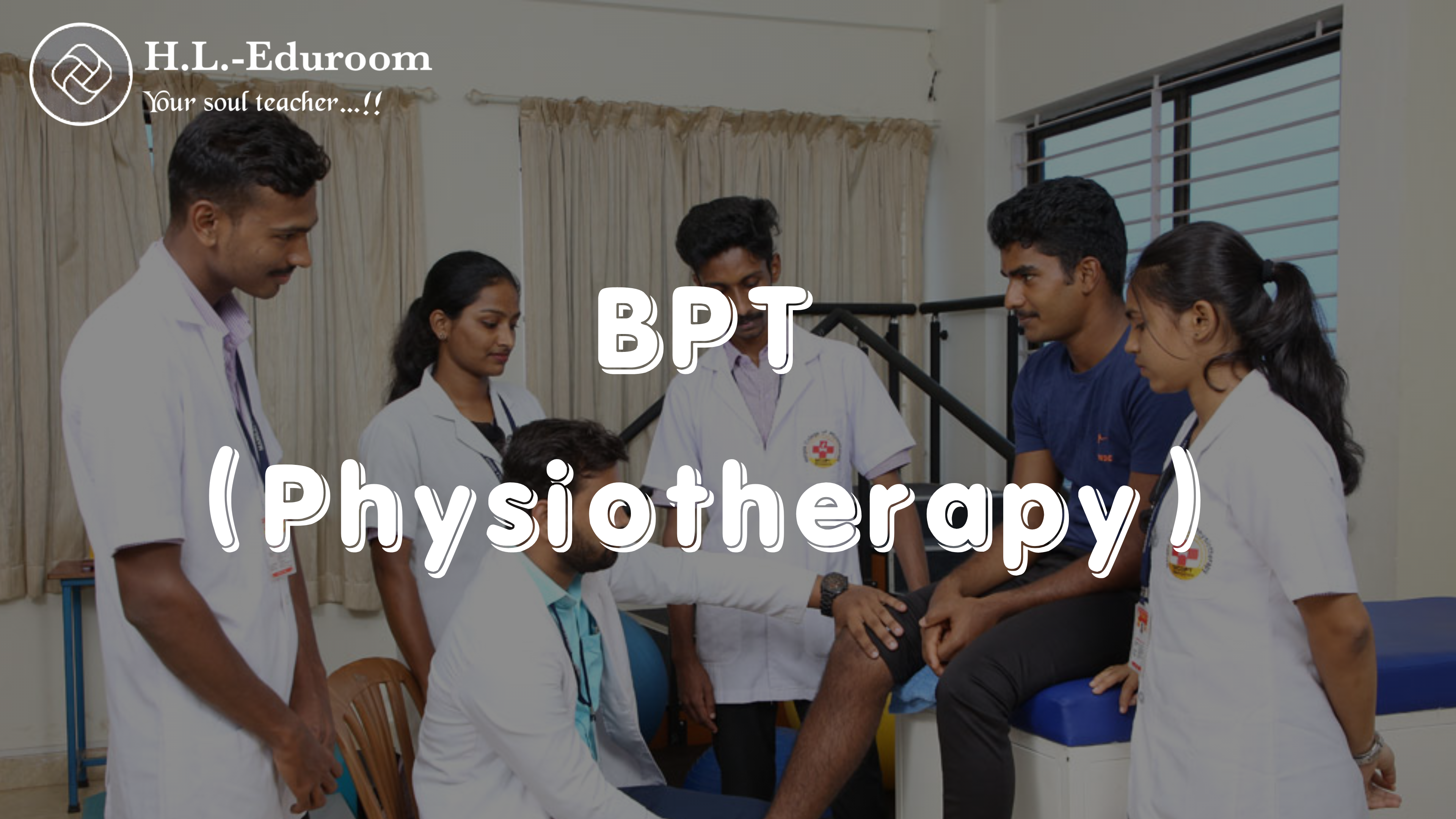Back to All Programs

BPT
Bachelor of Physiotherapy
The BPT program is a professional course that trains students to be physiotherapists, who help patients restore and improve their physical function and mobility.
Program Overview
Eligibility
Passed 10+2 or equivalent with Physics, Chemistry & Biology. Minimum aggregate: 50% in total marks or GPA 2.4
Duration
4 years
Available Seats
Varies by college
Program Description
The program's syllabus combines theoretical knowledge with practical skills to prepare students for clinical practice in various settings.
Syllabus Subjects
- 1Anatomy
- 2Physiology
- 3Biomechanics and Kinesiology
- 4Exercise Therapy
- 5Electrotherapy
- 6Orthopedic Physiotherapy
- 7Neurological Physiotherapy
- 8Community-Based Rehabilitation
Detailed Syllabus
Zoology
- Biology, origin and evolution of life (4 questions): Introduction to biology, theories of origin of life, evidences and theories of organic evolution, human evolution
- General characteristics and classification of protozoa to chordates (8 questions): Classification of animal kingdom, characteristic features of different phyla with examples
- Plasmodium, earthworm and frog (8 questions): Study of life history, morphology, anatomy and economic importance of Plasmodium, Pheretima (earthworm) and Rana tigrina (frog)
- Human biology and human diseases (14 questions): Digestive, respiratory, circulatory, excretory, nervous, reproductive and endocrine systems; Common human diseases; Sense organs
- Animal tissues (4 questions): Epithelial, connective, muscular and nervous tissues - their structure, location and functions
- Environmental pollution, adaptation and animal behavior, application of zoology (2 questions): Causes and control measures of environmental pollution; Animal adaptations and behavior; Application of zoology
Botany
- Basic component of life and biodiversity (11 questions): Cell structure and function, biomolecules, enzymes, classification of plants, viruses, bacteria, fungi, lichens, and conservation of biodiversity
- Ecology and environment (5 questions): Ecosystem, ecological adaptation, ecological imbalance and its consequences, greenhouse effect and global warming
- Cell biology and genetics (12 questions): Cell division, Mendel's laws, linkage and crossing over, mutation, genetic materials and genetic code
- Plant anatomy, physiology, and reproduction (6 questions): Plant tissues, photosynthesis, respiration, transpiration, growth regulators, reproduction in plants
- Algae and fungi (3 questions): General characteristics and life cycles of algae and fungi, economic importance
- Bryophytes, Pteridophytes, Gymnosperms, and Angiosperms (3 questions): General characteristics and life cycles
Chemistry
- General and Physical Chemistry (25 questions): Atomic structure, chemical bonding, states of matter, thermochemistry, chemical kinetics, chemical equilibrium, ionic equilibrium, solutions, electrochemistry
- Inorganic Chemistry (15 questions): Periodic table, s-block, p-block, d-block elements, coordination compounds, metallurgy, environmental chemistry
- Organic Chemistry (10 questions): Basic concepts of organic chemistry, hydrocarbons, haloalkanes, alcohols, phenols, ethers, aldehydes, ketones, carboxylic acids, amines, biomolecules
Physics
- Mechanics and Heat (20 questions): Kinematics, dynamics, work, energy, power, simple harmonic motion, fluid mechanics, heat, thermodynamics
- Optics and Modern Physics (15 questions): Geometrical optics, wave optics, photoelectric effect, atomic physics, nuclear physics
- Electricity and Magnetism (15 questions): Electrostatics, current electricity, magnetism, electromagnetic induction, alternating current
Weightage / Marks Distribution
| S.N. | Content/Domain | No. of Questions | Marks |
|---|---|---|---|
| 1 | Zoology | 40 | 40 |
| 2 | Botany | 40 | 40 |
| 3 | Chemistry | 50 | 50 |
| 4 | Physics | 50 | 50 |
| 5 | Mental Ability Test (MAT) | 20 | 20 |
| Total | 200 | 200 | |
Past Year Question Papers
Download previous years' question papers to practice and understand the exam pattern:
